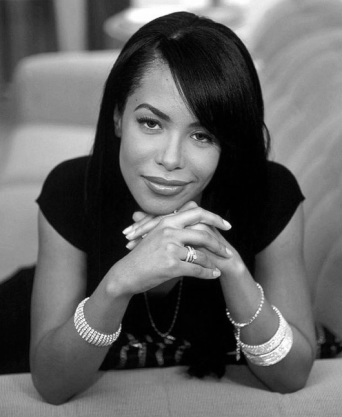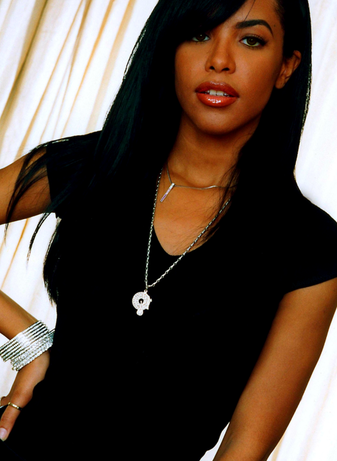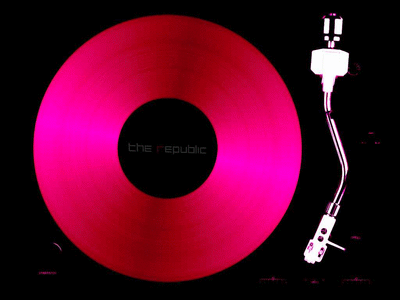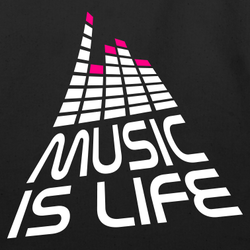 Aaliyah for James Patrick Cooper
Aaliyah for James Patrick Cooper For years, there were stirrings that some form of a film was in the making. Fans were split about whether or not a movie should happen. Some were flat-out against the idea, saying “let her rest.” Others formed their opinion based on how Aaliyah’s family felt (the latest statement was given by Aaliyah’s cousin and record label associate, Jomo Hankerson, who said the desire was for a major studio release, not a TV movie). The remaining portion of her followers were adamant about seeing Aaliyah’s story onscreen, but only if it was done “right:” a non-salacious and quality script, brilliant actors with close-enough likeness and involvement with her family and/or close friends, like her primary creative partners, Missy Elliott and Timothy “Timbaland” Mosley. A similar reactionary effect would occur anytime there were rumors of posthumous music. Hankerson ceased development of an alleged duet album produced by Drake and Noah “40” Shebib that would pair Aaliyah’s unreleased vocals with various artists after a backlash from fans and disapproval from her immediate family. Despite Drake making his adulation for Aaliyah extraordinarily known, fans just weren’t comfortable with anyone touching her music but Elliott and Mosley. To put it lightly, there was a less-than-enthusiastic response in June to 17-year-old Disney star Zendaya Coleman being cast as Aaliyah for the Lifetime project, with complaints that she may not have the acting chops, didn’t resemble Aaliyah enough and wasn’t the proper race even (Coleman is half black and half white). Let me just say, though I didn’t think Coleman was the best fit, she is a very talented young lady and claiming that she isn’t “black enough” because of part of her lineage and sending her hate messages is divisive, ignorant and cruel. Now, back to our regularly scheduled program…showing how guarding of the Aaliyah brand Zendaya is herself as a fellow devotee, she pulled out of the film, stating “…the production value wasn’t there, there were complications with the music rights, and I just felt like it wasn’t being handled delicately considering the situation…I tried my best to reach out to the family on my own and I wrote a letter, but I was unable to do so, therefore, I felt not really morally okay with moving forward with the project.”
Why is it all such a big deal? Why are we so protective when it comes to all things Aaliyah? We have different ideas on how things should be handled posthumously, but it’s all for the same reason. It’s because her story is unfinished. We got 2 fantastic albums that left us terribly yearning for another. When Aaliyah took a hiatus to reportedly finish school (she was really a teenager, huh?), many begged “When are you coming back?!” There was so much excitement about the things to come (which included a budding acting career) once there was buzz she had returned to the studio. We were eager to be reunited with our princess, our “cool older sister,” our BFF in our heads. We were granted with a simply timeless self-titled record after 5 years in July 2001, but just 39 days later, Aaliyah died. She was only 22….22. Her style and musical contributions to the history of R&B are indelible and iconized (a little more on that in a moment), but there’s a heartbreaking sense of unfulfillment because we knew the carving in the wood would’ve been driven even deeper. That’s why there are dozens of articles from magazines and blogs hypothesizing how our musical lives would’ve changed or been enhanced had she lived. In “Rock&Rant: Hip-Hop Killed R&B,” I suggested that R&B lost its identity while meshing with hip-hop. Considering that Aaliyah was 1 of the pioneering figures in R&B’s hip-hop merger, could the influence of her ever-novel work with Missy and Timbaland have kept the genre from going off-course? We knew what she was, we knew what we had and we wanted the world outside of our own to see it, and since Aaliyah is not here to execute that dream, we circumspectly appraise anyone (or anything) that attempts to do it for her. We don’t want her narrative and definition to be altered or presented in a way that is not true to her essence.
 Aaliyah for James Patrick Cooper
Aaliyah for James Patrick Cooper A quiet storm, Aaliyah was a personification of the union between R&B and hip-hop, both in sound and visual. She exuded the impenetrable confidence and bravado and challenging of norms (ex. her gender-bending fashion) typified in hip-hop and the suave, sensual and sexual cool of R&B. 2 of my favorite cuts, “One in a Million” and “I Can Be,” exemplify this. On top of the cut-time and slow, thumping beat of “A Million” and the rock-hop of “I Can Be” (with lusty, stunningly unapologetic lyrics about volunteering to be a mistress) is Aaliyah’s perfect, seductive vocal concoction of airy and deep. Through her representation, she made hip-hop more accessible to parts of the R&B (and some pop) audience that found the genre menacing or intimidating, and provided a happy medium in contrast to R&B/hip-hop confrere Mary J. Blige, who had an arguably rougher presence and more solemn music. 1 of Aaliyah’s greatest gifts to us was bringing our attention to the ingenuity of Elliott and Mosley; their collaboration on Aaliyah’s sophomore One in a Million LP helped bring the pair from “on the rise” into high-demand. As a trio, their ardent friendship and blistering musical chemistry was so unmistakable, it rivaled that of Jimmy Jam, Terry Lewis and Janet Jackson. An example of the imbuing impression Aaliyah left on anyone that was exposed to her, Elliott and Mosley’s work would noticeably change and seem uninspired without their muse. As Timbaland ventured into pop, he rode the line between “signature sound” and sounding all the same. Missy received mixed reviews for her 2 post-Aaliyah albums and hasn’t recorded in almost 10 years. In a New York Hot 97 radio interview, Timbaland said of participating in the Hankerson duet album: "For me, I have a hard time just listening to her music. So to sit there and do some music?” Missy added, "I have to respect her family. Until they come and say they're ready to do an Aaliyah album, I don't want to get into that.”
The wound is very much still open. I’m not sure if the bleeding has yet stopped, much less become a scar. What is healing? Is it even an option? Our sensitivity to everything bearing Aaliyah’s image and name is because the unfinished story. The irreversibly unfinished story. Is it truly irreversible? Is there a way to complete the chapters, and if there is, would we do it? If we were successful, would it finally give us closure? There’s so much joy in having something so precious and inimitable, but so much pain if you’re ever to be without it. Recalling the elation is what helps ease the sorrow. I hope whatever comes in the future--book, movie or otherwise--helps close the wound versus pour salt in it. When snapping at someone who didn’t understand why I was so particular about who portrayed Aaliyah, I yelled “...Because! This is Babygirl (Aaliyah’s nickname)! Our babygirl!” We were hers, she was ours, and it will always be that way.
Aaliyah Dana Haughton 1.16.79-8.25.01


 RSS Feed
RSS Feed